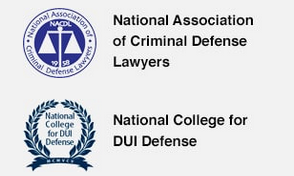Use of Witness Testimony in Assault and Aggravated Assault Cases
Attorney Assisting Phoenix Residents Charged With Violent Crimes
You can be charged or convicted of assault or aggravated assault even if you didn’t injure anybody. Battery, in contrast, only happens if there is actual offensive or injurious contact with somebody else. Often these charges are brought after a fight. Assaults are efforts or threats to injure somebody. Use of witness testimony in assault and aggravated assault cases can result in a conviction. An experienced Phoenix assault defense lawyer can answer your questions and help you explore available defenses.
What Must Be Shown in Assault and Aggravated Assault Cases?
You can be charged with assault under A.R.S. section 13-1203 if (1) you knowingly, intentionally, or recklessly cause injury to someone else or (2) you intentionally made someone reasonably apprehend you were about to physically injure him or (3) you knowingly touch someone else with the intent of injuring, insulting, or provoking him.
Aggravated assault under A.R.S. section 13-1204 is perpetrated where someone commits assault as prescribed under section 13-1203 and other circumstances are present, such as where serious physical injury was caused, a deadly weapon was used, or the assault was perpetrated through force that caused temporary but substantial disfigurement and temporary but substantial loss of any bodily organ or a fracture of a body part.
Use of Witness Testimony in Assault and Aggravated Assault Cases
Like other crimes, assault and aggravated assault must be proven beyond a reasonable doubt. One type of evidence that can be powerful in these cases is witness testimony. Under Arizona rules, a witness is someone whose testimony under affirmation or oath is offered as evidence for any purpose. Witnesses can include the victim, the alleged perpetrator, eyewitnesses, and in some cases, experts.
Sometimes defendants wonder if a case will be dismissed if the alleged victim of an assault chooses not to testify. It depends on the circumstances. Prosecutors do sometimes move forward with assault or aggravated assault charges even a if a victim doesn’t want to testify. There are multiple reasons why this might happen. Sometimes there is a recording of a 911 call, a surveillance videotape in a bar or other public place, or other evidence that can be used in lieu of victim testimony about what happened.
There is a rule against hearsay evidence. Hearsay consists of out-of-court statements that are put forward in order to prove the truth of what was said. While there is a prohibition on hearsay, there is an exception for excited utterances. Further, there may be many other witnesses who can testify about what happened or who may provide foundation for a videotape of what happened. For example, a witness may testify and a surveillance tape may show that you advanced on the victim with a knife. A 911 call may include the victim stating that you were hitting her or it might even include the sounds of you making threats, and some of these may be admissible as excited utterances even though they are hearsay. A skilled criminal defense lawyer can assess whether this exception may apply to any of the evidence in your case.
Witness Tampering
You should never try to prevent a witness from testifying against you. There is an exception to the prohibition against hearsay evidence where the out-of-court statement was offered against someone who wrongfully and intentionally caused the speaker’s unavailability as a witness. The factors the court will use to determine whether the exception should apply are: (1) the witness isn’t available, (2) the defendant’s actions are considered wrongdoing, (3) the defendant gets involved in witness tampering, and (4) the witness tampering was intentionally and successfully performed in order to get the victim to be unavailable. If these factors are shown to be more likely true than not true, the statements can be admitted.
Assault Defense Lawyer Serving Phoenix Residents
If you believe a prosecutor will use witness testimony against you to try to obtain a conviction for assault or aggravated assault, an experienced violent crimes defense attorney can help. James E. Novak is a former prosecutor who now represents defendants throughout the Phoenix area, and who is well-versed in the use of witness testimony in assault and aggravated assault cases. We serve clients in communities including Gilbert, Mesa, Scottsdale, Chandler, and Maricopa County. Contact James Novak at (480) 413-1499 or via our online form.






















